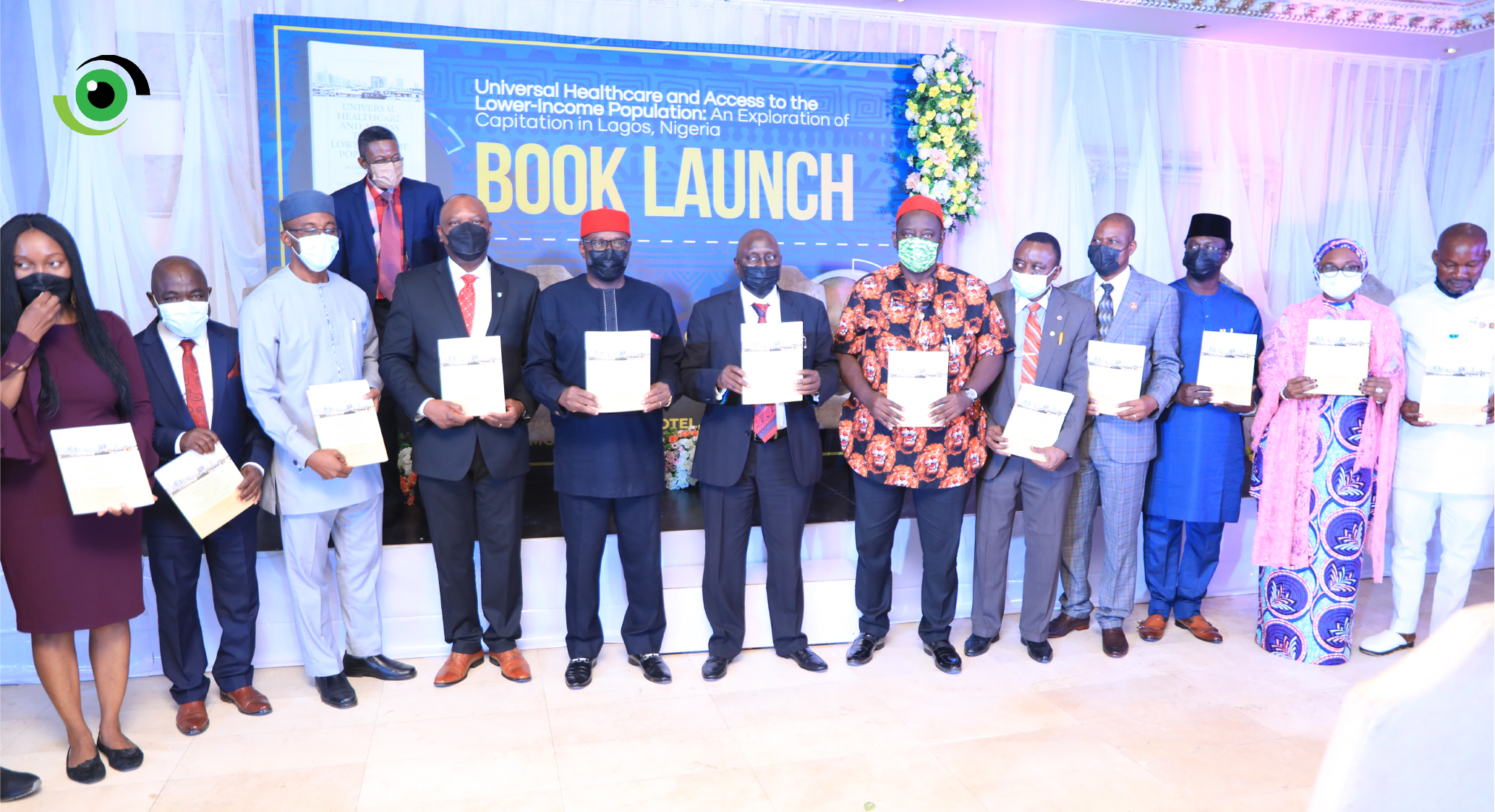On September 14, 2021, Dr Charles Ezuma-Ngwu, launched a book titled ‘Universal Healthcare and Access to the Lower-income Population: An exploration of Capitation in Lagos, Nigeria’. A financial and budget analyst, Dr Ezuma-Ngwu wrote the book as an output from his PhD research to provide evidence that would encourage policy and action to deliver quality healthcare for the informal sector and contribute meaningfully to discussions around Universal Health Coverage (UHC) in Nigeria.
Strategically placed to provide leadership for translating the book’s recommendations to policy, Chairman of the Senate Committee on Health, Dr Ibrahim Oloriegbe chaired the occasion. He said “it’s a good thing that the author is sharing his findings beyond academic space with critical stakeholders. Even if it’s not used directly, it will help stimulate our thoughts to interrogate what we are doing.”
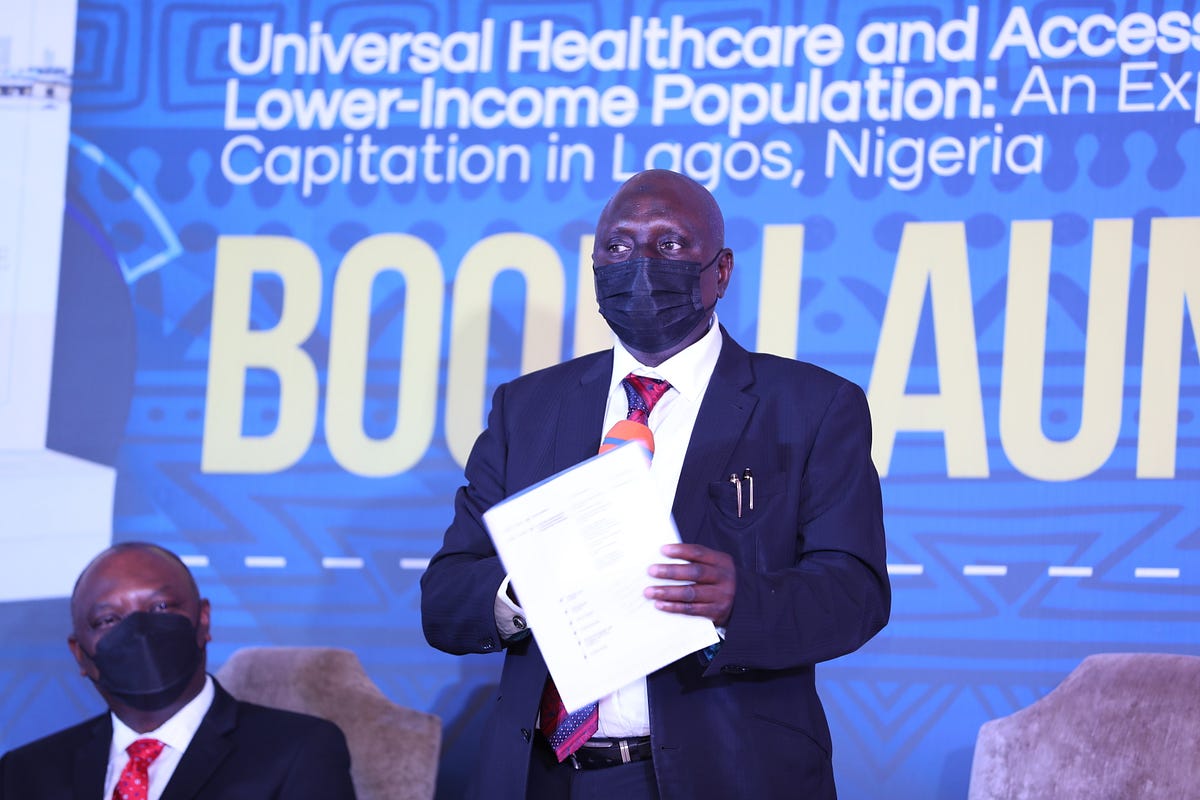
Other guests at the launch include the President of the Nigeria Labour Congress, Comrade Aliyu Wabba, Professor Onyebuchi Chukwu, former Minister for Health, Dr Paul McDermott, Director of Health, Population and Nutrition at USAID Nigeria and Dr Sampson Ezikeanyi of the United Nations Population Fund (UNFPA).
The gap between the government’s efforts to provide affordable healthcare to Nigerians and the inability of the National Health Insurance Scheme (NHIS) to effectively cover the lower-income population inspired this work. Having witnessed firsthand the catastrophic impact of poor healthcare which he considers endemic, Dr Ezuma-Ngwu said the book recommends “an alternative method for delivering healthcare to the impoverished populations in Nigeria and developing economies worldwide”. Understanding that disease prevention is a key component of healthcare, he explores how a location-based healthcare Provider-Based Capitation Payment (PBCP) system may provide affordable healthcare access for disease prevention needs of low-income population clusters in Nigeria.
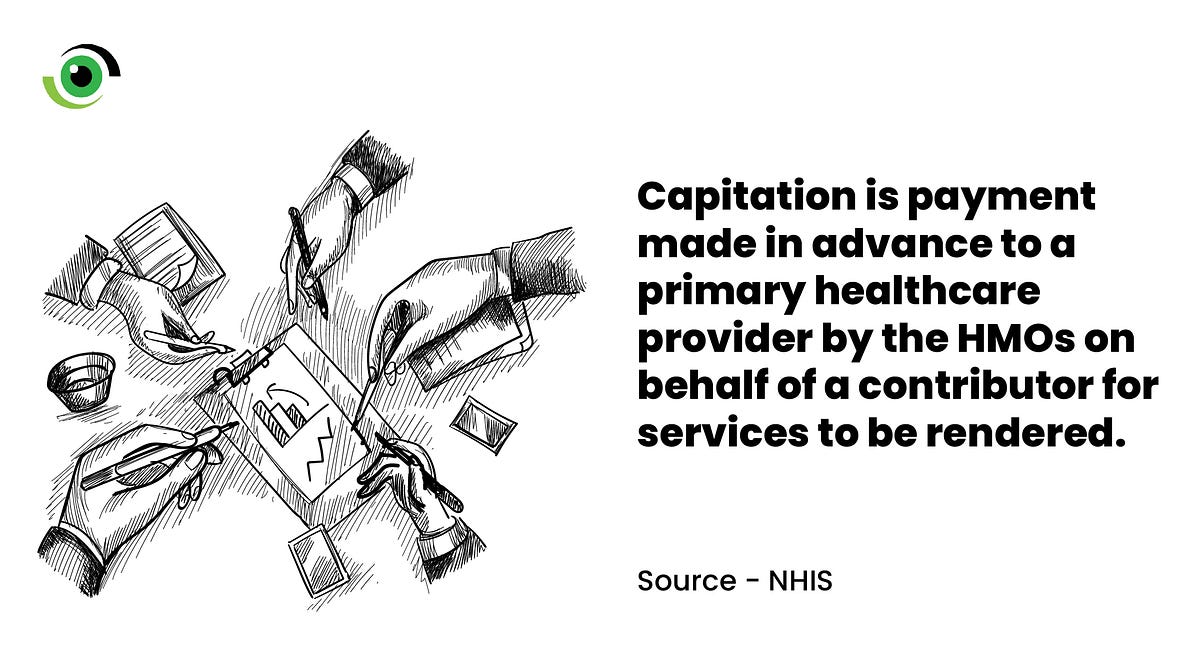
Making a Case for Provider-Based Capitation Payment (PBCP)
The capitation model requires that a fixed amount of money per patient for a specified time is paid in advance to a physician for the delivery of healthcare services. The amount paid is determined by the range of services that are provided, the number of patients involved, and the period during which the services are provided. Key findings from the book show that government-supported, adequately resourced capitated payments to providers can ensure greater access to care, especially to lower-income populations.
While PBCB is the recommended payment model, an important question raised by Dr. A.J. Arigbabuwo who chairs the Healthcare Providers Association of Nigeria was the sufficiency of the payments. Speaking during a panel session moderated by Dr Tolu Fakeye, former Director, Planning, Reseach and Statistics at the Federal Ministry of Health, he said providers are critical stakeholders while the enrollees are the kings.
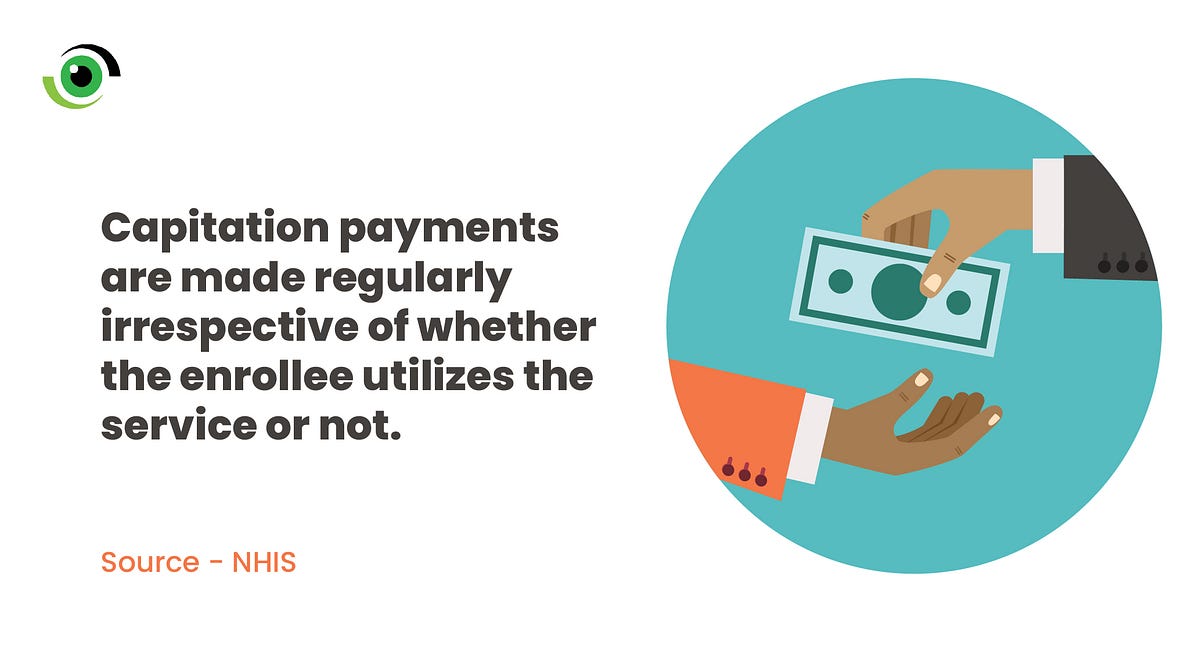
Salient points raised in the book further opened the conversation at the book launch, capturing important insights on advancing healthcare in Nigeria.
The ‘Universal’ in UHC is for a reason
For many countries, including Nigeria, achieving UHC has been challenging partly due to an inability to effectively capture the informal and low-income members of society. The informal sector makes up a large part of the population and in 2017, they contributed approximately 65% to Nigeria’s Gross Domestic Product (GDP). It therefore is imperative that they are able to access quality healthcare when they need it without going into poverty. As aptly stated by Professor Chima Onoka, Director, Institute for Excellence in Healthcare and Leadership and the book reviewer, “Unless healthcare is achieved for the informal sector in Nigeria, achieving Universal Health Coverage will remain a mirage.
All round security through access to healthcare
While moderating the event, the CEO of EpiAFRIC, Dr Ifeanyi Nsofor shared Dr Tedros Ghebreyesus’ popular quote of UHC and health security being two sides of the same coin, reminding delegates of how important UHC is to health security, especially as the world tackles the COVID-19 pandemic. Prof. Onoka painted a vivid picture of people who live in high-brow areas thinking they are safe from disease outbreaks, forgetting that most of their domestic staff are from urban slums around the city. This may explain why disease outbreaks move swiftly from one settlement to another.
Health investments that promote preventive care ensure the population is safe from infectious diseases, and when they do happen, they can be detected and contained more effectively because patients are not afraid to visit hospitals to access healthcare.

Collaboration for progress
There have been multiple calls for better collaboration to improve Nigeria’s health sector. One of the ways this can be achieved is through data sharing. This is important because where one research or endeavor stops could be the beginning of another.
In his book, Dr Ezuma-Ngwu combined data from a 2015 census study supported by the United States Agency for International Development (USAID), Lagos Bureau of Statistics, and Lagos Health Management Agency. He also incorporated data from the NHIS list of Health Management Organisation (HMO) offices and locations in Lagos State.
Dr Amina Aminu Dorayi, Country Director of Pathfinder International Nigeria, expanded on the conversation by sharing the merits of leveraging the support of international agencies to improve UHC. “This”, she said, “is important because health outcomes, whether positive or negative, impact all and should be everyone’s responsibility not just the government”. Pathfinder International’s contribution to the healthcare system is aimed at improving coverage and access to care especially for Reproductive, Maternal, Newborn and Child Health (RMNCH) and for Dr Dorayi, focusing on women and children is a step closer to achieving UHC. “If we have not addressed the issues that affect women and children in Nigeria, then we’ve not started achieving UHC because they are the ones that seek healthcare more,” she said.
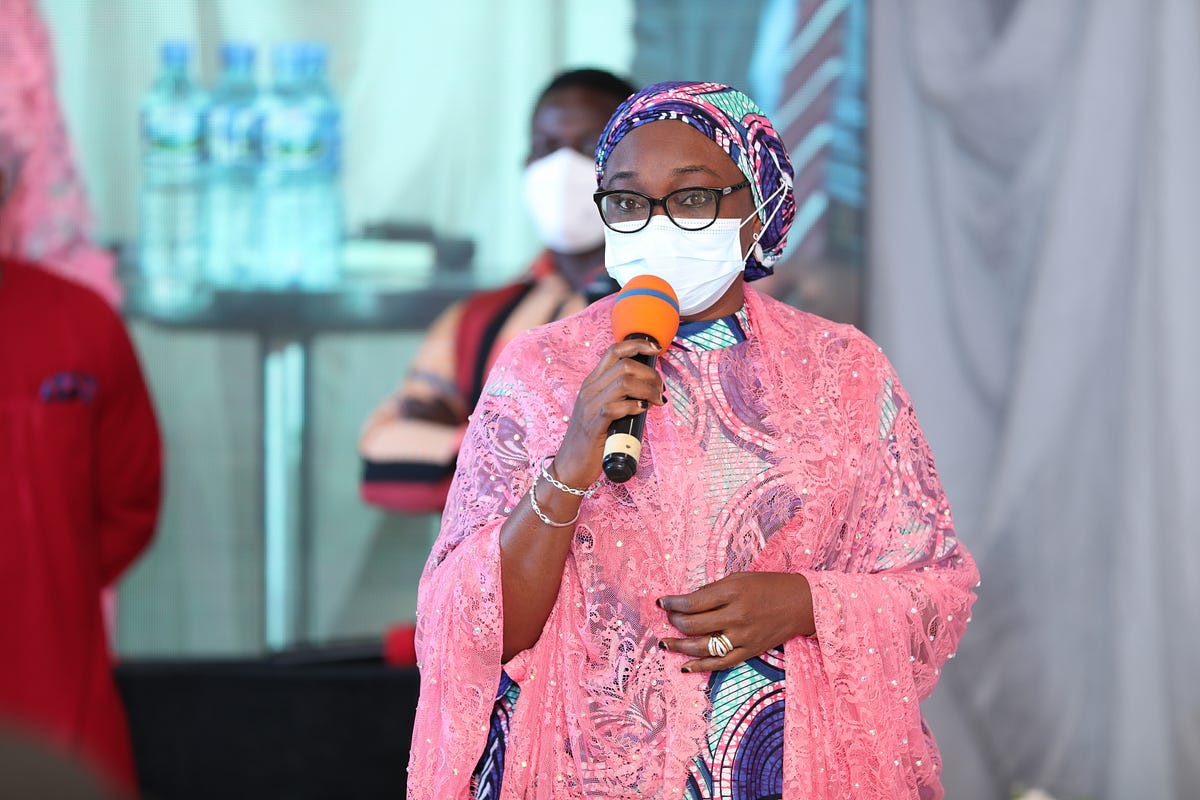
To ensure that every person benefits from the right to health, political leaders must make the right economic, financial, and social choices for UHC. While the government’s goal is to provide healthcare to the people, effective implementation of this goal including focused government support and resources has fallen short of expectations. The author has strongly communicated that capitation is the way to go as PBCB is a cost-effective financing method for advancing UHC.
In page 67 of the book, Dr Ezuma-Ngwu pointed out that, “China achieved the most aggressive and far-reaching UHC through the successful implementation of PBCP schemes…The most considerable expansion of PBDP in China was made possible by interventions in healthcare, commitment from leaders, substantial government subsidies and delegation of healthcare management responsibilities to local governments”. He hopes that this study he has collated in book form will spur a renewed discussion on the values of PBCP in the government’s efforts to reach Nigeria’s lower-income population.


